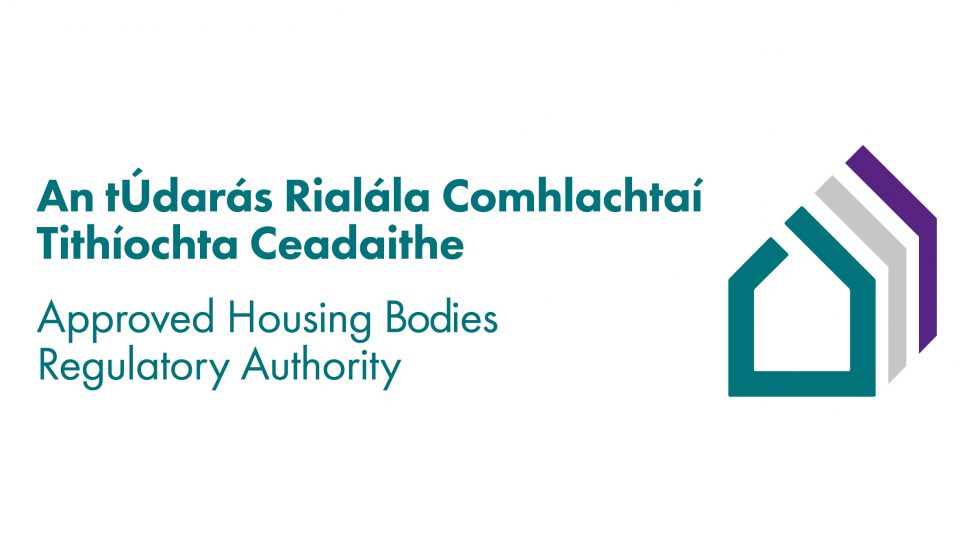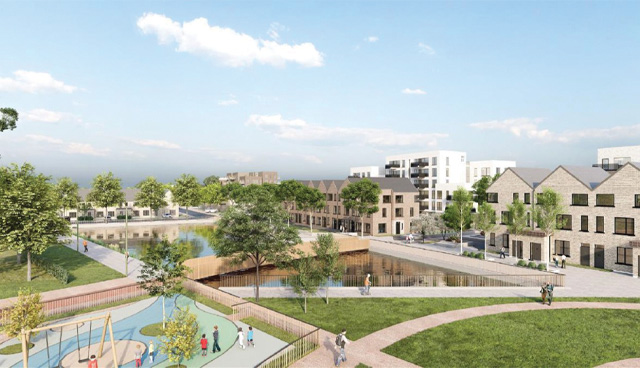
Ageing in place
1st June 2021
John O’Connor, The Housing Agency: Foreword
1st June 2021Housing Minister Darragh O’Brien TD: “A matter of moral urgency”

Minister for Housing, Local Government and Heritage Darragh O’Brien TD published his Affordable Housing Bill with Cabinet approval on 4 May 2021, as news broke that a global investment company had block purchased most of a new housing development in Maynooth. The result was an instantaneous revival of intense media and public scrutiny of the ongoing housing crisis. Speaking with Ciarán Galway, the Minister discusses his legislative priorities, first time buyers and ambition.
To what extent have successive governments failed ‘generation rent’ and ‘generation stuck at home’?
This Government have put delivery, affordability and the chance to own your home at the very heart of housing policy. But it’s clear we have an ongoing affordability crisis. It has reduced home ownership rates to historic lows. It has increased the age of the average first time buyer by almost a decade to 35 years of age. Ireland has dropped from a world leader to below the EU average rate of home ownership. A generation is caught in an unaffordable rent trap, and as Housing Minister I’m committed to finding genuine solutions to help those people.
There are five main aspects to the Affordable Housing Bill 2021 including the first direct build affordable housing programme by our local authorities in over a decade, a new form of cost rental tenure, a targeted and time-bound shared equity scheme, an increase in the Part V provision from 10 per cent social to a flat 20 per cent social and affordable with a minimum 10 per cent social housing and the provision of an owner occupier guarantee which will allow local authorities to designate a certain percentage of houses and duplexes for individual buyers.
I believe the rent pressure zones (RPZs), introduced in 2016, which had a cap of 4 per cent on rent increases, became a target for some instead, these RPZs expire at the end of 2021 and I am working with my department on options for their replacement as part of an overall rent reform Bill which will be brought forward in the autumn.
The new cost rental model, which will deliver 440 homes this year and which we hope to significantly scale up in the coming years, will also mark a step change in the rental market. It’s a model where the tenant pays the cost of delivering, managing, and maintaining the homes only. It will be long-term secure tenure.
What has this government delivered in the housing brief in the last 10 months?
Despite the challenges presented by the pandemic, government has been focused on progressing major reforms that will accelerate and increase the supply of housing — public, affordable and private. Boosting supply is key to resolving so many of our housing challenges, whether it’s helping those experiencing homelessness into a permanent home, reducing the numbers on our social housing waiting lists, or addressing our affordability crisis.
Immediately following my appointment in June last year, I convened two top level groups to focus on urgent actions around homelessness and social and affordable housing delivery. These groups consist of high-level officials, and key stakeholders across homeless charities, approved housing bodies, the Housing Agency and local government. Through these groups, we are trying to accelerate successful exits from homelessness, keep delivery at the highest pace possible, work through any blockages, and understand and address challenges arising from Covid-19.
Acknowledging that Covid-19 does present a massive challenge to delivery, in July 2020 we announced €40 million in funding as part of the Government’s stimulus programme for the refurbishment of 2,500 vacant social homes, which would be completed and allocated in 2020. This target was exceeded with 2,565 vacant social homes brought back into use across all our local authorities as a result of the voids stimulus. In total 3,607 vacant social homes were brought back into use nationally. Just recently (Friday 21 May 2021), we announced another voids programme with another 3,000 vacant social homes to be brought back into use this year.
We’ve also taken a number of practical steps to speed up delivery, revising the single stage approval process for capital expenditure on social housing construction projects up to €6 million; a key commitment in the Programme for Government which means that local authorities will have greater autonomy in constructing social housing, leading to accelerated delivery.
“A generation is caught in an unaffordable rent trap, and as Housing Minister I’m committed to finding genuine solutions to help those people.”
We increased the threshold on the Repair and Lease scheme from €40,000 to a maximum of €60,000 to assist in bringing vacant properties back into use for social housing purposes and we have substantially increased funding for Irish Water which will help to unlock capacity for housing and development.
In the past year, I have introduced four separate pieces of rent protection legislation, providing protections to those who need them most while the pandemic continues, and we are currently working on a rent reform Bill to be brought forward in the autumn.
Cost rental, a model which has been talked about for a number of years, will see its first tenancies delivered this year, and will be delivered at scale in the coming years. So, government has clearly sent a message to those who are renting that we do acknowledge the uncertainty that it brings and that we are working to make it a secure form of tenure for those who want it.
On homelessness we have made some progress but the situation remains challenging. Family homelessness is now at its lowest level since March 2016 and, thankfully, there has been an 80 per cent decrease in the numbers of families accommodated in hotels. But we need to keep doing all we can to support all those who are experiencing homelessness and we absolutely need to drive down the numbers experiencing homelessness, in particular in the numbers of single adults.
Earlier this year, government announced a total of €1.3 billion in Urban Regeneration and Development Funding (URDF). At its core this fund aims to deliver more compact and sustainable development ensuring our urban areas become attractive and vibrant places in which to live, work, visit and invest.
Since taking office, government has made the Affordable Housing Bill and the Land Development Agency Bill legislative priorities. Combined these two Bills will work together to give people the opportunity of ownership. They are landmark pieces of legislation and are backed up by the largest housing budget in the history of the State. The Government has made a commitment that everybody should have access to good-quality housing to purchase or rent at an affordable price, built to a high standard, and located close to essential services, offering a high quality of life. I’m focused on bringing measures in that are going to help us achieve that goal. There is no silver bullet, and we cannot fix our housing crisis overnight. But I’m confident that at that we’re going in the right direction.
What are the objectives of the Affordable Housing Bill 2021?
The Affordable Housing Bill 2021 puts affordability back at the heart of the housing system and will reshape delivery of housing in Ireland. The Bill now has five key elements. It will provide for the first local authority-led, direct build affordable homes on State lands in more than a decade and our first ever national cost rental scheme. It also includes an innovative shared equity scheme and an expansion of Part V to help first time buyers.
The rollout of local authority-led, direct build affordable housing will be the central plank of the Government’s affordable housing plan. Units will range from €160,000 to €310,000 and the upcoming Housing For All plan, which will be published this summer, will set out the ambitious range of targets throughout the State over the coming years.
Cost Rental has been much spoken about, but the Affordable Housing Bill finally puts this new and much needed tenure type on a firm legislative footing. This will help us deliver cost rental homes in the short term — we’ll see the first tenancies later this year — and into the future as we develop a more sustainable, affordable, high quality rental sector.
The conversation around the Affordable Housing Bill has at times zeroed in on the shared equity scheme. I welcome discussion, any scheme worth its salt has to stand up to scrutiny and take on board constructive suggestions but it will be a targeted, short-term measure designed to help people buy homes this year and boost housing supply.
There are inactivated planning permissions for over 40,000 units in Dublin alone and 80,000 nationally — we need these permissions to be activated. To directly address the concerns raised around potential price inflation we have put in place regional price caps. These are price caps, not targets, they are the upper limit at which a person can avail of the scheme. They are based on evidence from the CSO median house price data and provide for a range of house types within them to reflect market demand. Ultimately, they help to capture as many new units as possible while mitigating against any inflationary effect.
“Since taking office, government has made the Affordable Housing Bill and the Land Development Agency Bill legislative priorities. Combined these two Bills will work together to give people the opportunity of ownership.”
To put the scheme in context, it has been allocated €75 million, or 2.3 per cent of our €3.3 billion housing budget or 0.68 per cent of the overall €11 billion mortgage market. It is based on equity not debt with no obligation to buy it out so it is not a second mortgage and the macro prudential rules are fully protected. We are continuing to engage with the Central Bank on the scheme but I am confident it will offer those people who want to buy their own home this year a chance to do so.
The decision to increase the Part V provision to 20 per cent — with 10 per cent social and 10 per cent affordable — repeals the 2015 decision to reduce Part V and further strengthens it by applying it across every local authority. In real terms, this will result in an additional 3,500 affordable units per annum when fully operational.
Finally, the owner occupier guarantee which government has agreed to introduce, will allow local authorities designate a set amount of homes and duplexes (up to 50 per cent) for individual buyers into the future. Each of these measures demonstrate clearly that this government supports home ownership and wants to make it a reality.
Given the structural challenges which exist within the Irish housing market, what impact will the Affordable Purchase Shared Equity Loan Scheme have?
The new Affordable Purchase Equity Scheme will be targeted, time and finance limited, and subject to regional price caps in order to immediately activate supply, counter any inflation risk and unlock realisable demand. It will be targeted at first time buyers who are seeking to buy a new home, but who cannot quite secure the full mortgage amount to do so at the present time. It will immediately help up to 2,000 potential owners this year.
The scheme will allow people who are currently paying more in rent than a mortgage would cost, to buy their first home. It’s the difference between them continuing to pay rent while trying to save every other cent over the next few years, and being able to purchase a home and pay down a mortgage this year. Again, to put the scheme in context, it has been allocated €75 million, or 2.3 per cent of our €3.3 billion housing budget or 0.68 per cent of the overall €11 billion mortgage market. Taken in tandem with the other measures in the Affordable Housing Bill it will incentivise new builds for new buyers in right places at right price points.
How will the Land Development Agency Bill 2021, coupled with the Affordable Housing Bill 2021 change how the LDA operates?
The LDA is a historic new agency and it will be a driving force to deliver affordable homes at scale and ensure we don’t let State lands lie idle in the middle of an emergency. The LDA has the potential to be a game changer in making sure we use every acre of land owned by the State effectively. It will assess all State land in our large towns and cities and where it’s needed, develop them for social and affordable housing.
House prices and cost rents will be set at an affordable level by geographic area by the Minister for Housing through regulations. This allows for local flexibility rather than a single rigid approach. The Bill, currently progressing in the Oireachtas, places the Agency on a statutory footing with legally set core goals of affordability and strategic land management. The Agency is already working on developing nine sites with local authorities on over 3,000 new homes. As I said earlier, increasing housing supply is a key objective for the Government and the LDA will play a key role in this regard.
How do you intend to “level the playing field” for first time buyers?
The Government is taking firm action to protect traditional family homes from bulk purchases while maintaining investment where it is needed. This will be done through an immediate stamp duty hike which was introduced by Finance Minister Paschal Donohoe TD and longer-term planning permission changes made by my department.
We have already issued new planning guidelines by way of a departmental circular under Section 28 of the Planning and Development Act 2000 to require local authorities and An Bord Pleanála to prohibit bulk buying of houses and duplexes and we will be making an amendment to the Affordable Housing Bill to include the “owner occupier guarantee” allowing local authorities designate a set amount of homes and duplexes (up to 50 per cent) for individual buyers into the future.
“There is a lot more involved in this crisis than just the future of a single political party or government. Getting to grips with the challenge is a matter of moral urgency and civic duty.”
These actions were taken swiftly in response to the very understandable frustration and anger at investment funds buying homes and crowding first time buyers out of the market. But these measures alone are not a silver bullet. They complement other government supports like direct build of affordable homes by local authorities, the expanded Help to Buy scheme and the new shared equity scheme to help level the playing field for first time buyers and turn generation rent into a generation that can own their home.
What do you hope to achieve over the next 12 months in your remit as Housing Minister?
In the immediate term, I want to see the Affordable Housing Bill and the LDA Bill enacted swiftly so that people can reach their goal of home ownership this year. The Government has also committed to establishing a Commission on Housing and this forum will examine a range of issues from tenures and standards to the quality-of-life issues in the provision of housing.
We have been clear that we will use every tool in our armoury to tackle our housing crisis and this involves harnessing the expertise and experiences of others — I hope to have this Commission established shortly.
I also want us to continue to drive down homeless numbers. In 2020 alone, almost 5,900 such exits from homelessness have been achieved. All these exits were to homes with tenancies. This work must continue in earnest. We are working on expanding the Housing First initiative, which provides homeless people with high support needs with housing and the wraparound supports required to maintain their tenancy. There are now over 500 active Housing First tenancies nationwide, and the success rate of these tenancies shows us that the approach is working.
Two very significant pieces of legislation are currently being worked on, one in relation to rental protections and tenure and the other in relation to planning. It is my intention that both will be published in the autumn. There is a lot more involved in this crisis than just the future of a single political party or government. Getting to grips with the challenge is a matter of moral urgency and civic duty.





